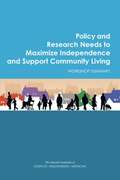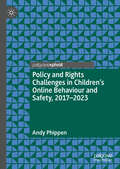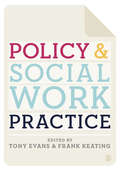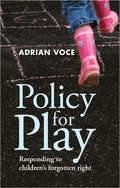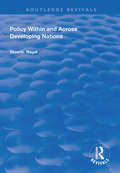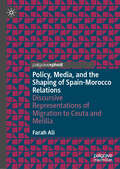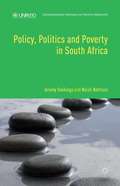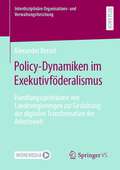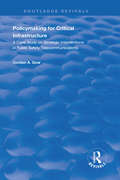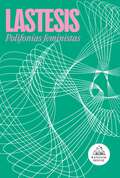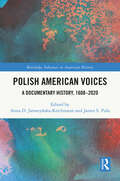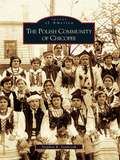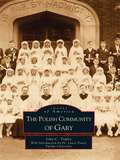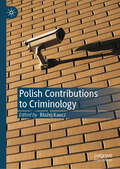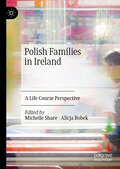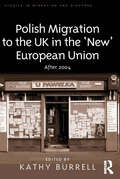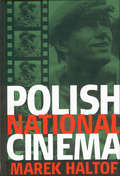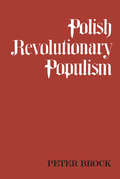- Table View
- List View
Policy and Research Needs to Maximize Independence and Support Community Living: Workshop Summary
by Engineering Medicine National Academies of SciencesLiving independently and participating in one’s community are priorities for many people. In many regions across the United States, there are programs that support and enable people with disabilities and older adults to live where they choose and with whom they choose and to participate fully in their communities. Tremendous progress has been made. However, in many cases, the programs themselves – and access to them – vary not only between states but also within states. Many programs are small, and even when they prove to be successful they are still not scaled up to meet the needs of the many people who would benefit from them. The challenges can include insufficient workforce, insufficient funding, and lack of evidence demonstrating effectiveness or value. To get a better understanding of the policies needed to maximize independence and support community living and of the research needed to support implementation of those policies, the National Academies of Sciences, Engineering, and Medicine convened a public workshop in October 2015. Participants explored policies in place that promote independence and community living for older adults and people with physical disabilities, and identified policies and gaps in policies that can be barriers to independence and the research needed to support changing those policies. This report summarizes the presentations and discussions from the workshop.
Policy and Rights Challenges in Children’s Online Behaviour and Safety, 2017–2023
by Andy PhippenThis book evidences the cyclical failures of online safety policy and challenge conventional policy and educational approaches to tackling online harms, and provide a robust argument for a critical, evidence-based approaches which align with the needs of those we claim to wish to protect. It argues for a move away from knee jerk, headline grabbing and subjective policy development. In drawing parallels from the drug policy world, contrasting the increasingly progressive and evidence based policy making in this space compared to prejudiced, emotive developments in online harms.
Policy and Social Work Practice
by Frank Keating Dr Tony EvansSocial policy is central to social work practice. This textbook is designed to help students, practitioners and academics think critically about the relationship between policy and practice; particularly in how policy both structures and informs practice. Reflective questions help critical thinking and links to websites of substantive information across the UK and internationally help keep you up-to-date with policy developments. The authors' experience and skills in working with different service user groups combine to provide a constructive and critical approach to working with social policy in an era of welfare retrenchment. Key topics include: discretion and practice; social work training and education; safeguarding children; responses to the needs of looked after children; personalization in adult care; ’race’ and welfare policy; domestic violence; mental health and capacity; and comparing social work and social care internationally.
Policy and Social Work Practice
by Tony Evans Frank KeatingSocial policy is central to social work practice. This textbook is designed to help students, practitioners and academics think critically about the relationship between policy and practice; particularly in how policy both structures and informs practice. Reflective questions help critical thinking and links to websites of substantive information across the UK and internationally help keep you up-to-date with policy developments. The authors′ experience and skills in working with different service user groups combine to provide a constructive and critical approach to working with social policy in an era of welfare retrenchment. Key topics include: discretion and practice; social work training and education; safeguarding children; responses to the needs of looked after children; personalization in adult care; ’race’ and welfare policy; domestic violence; mental health and capacity; and comparing social work and social care internationally.
Policy for Play: Responding to Children's Forgotten Right
by Adrian VocePlay is fundamental to children’s health, wellbeing and development. Yet in the modern world, their space and opportunity to play is under threat. This is the first book to look in detail at children’s play within public policy. Using the UK government’s play strategy for England (2008-10) as a detailed case study, it explores states’ obligations to children under the UN Convention on the Rights of the Child and the General Comment of 2013. It presents evidence that strategies for public health, education and even environmental sustainability would be more effective with a better-informed perspective about the nature of play and the importance of allowing children more time and space for it. The book throws down a challenge to both play advocates and governments, to make effective policy that respects, protects and fulfils children’s right to play as a priority. It is an essential tool for practitioners and campaigners around the world.
Policy within and Across Developing Nations (Routledge Revivals)
by Stuart S NagelFirst published in 1998, policy WITHIN developing nations includes: (1) Economic policy, such as economic growth without inflation or sectors of unemployment; (2)Technology policy, such as encouraging the ad option of improved technologies for health, energy, transportation, agriculture, manufacturing and the environment; (3) Social policy, such as education facilities, and merit treatment across ethnic groups, genders, age groups, economic classes, and geographical regions; (4) Political policy, such as multiple sources of ideas from different government levels, branches, interest groups, and parties; (5) Legal policy, such as compliance with the law by street people, business people, and government people. Policy ACROSS developing nations includes: (1) International economic policy, such as trade, tariffs exchange rates, and factory relocation; (2) International technology policy, such as patents, copyrights, trademarks, and other aspects of technology transfer; (3) International social policy, such as immigration, refugees, and cross-border ethnic friction; (4) International political policy, such as human rights and the role of sanctions; (5) International legal policy, such as the drug trade, human rights, business transactions, torts, and property rights across national boundaries.
Policy, Media, and the Shaping of Spain-Morocco Relations: Discursive Representations of Migration to Ceuta and Melilla
by Farah AliThis book uses sociolinguistic approaches to explore how media discourse on undocumented migration informs Morocco-Spain political relations. Historically, much of the contact between these two nations has been through conquest - first through the Umayyad Caliphate taking control of the Iberian Peninsula (then called Hispania) in the 8th century, and then through Spain’s occupation of northern Morocco in the 20th century. Though these historical roots have undoubtedly played a role in shaping present-day Morocco-Spain relations, migration has also become another critical element, as the majority of legally authorized migration to Spain comes from Morocco. Additionally, Morocco serves as a sojourn for much of the undocumented migration to the Spanish autonomous cities of Ceuta and Melilla, both of which are enclaves in Morocco and common entry points for North African and Sub-Saharan African immigrants. Migration to Ceuta and Melilla has therefore become a flashpoint for anti-immigration attitudes that are frequently perpetuated in political and media discourse. The author uses these cities as a case study, situating them within the wider context of both immigration-related policies and news articles in order to examine how migration is represented in Spain and Morocco. The book connects media discourse with policy discourse, and addresses how these mediums (1) co-construct anti-immigration and xenophobic ideologies, and (2) shape and are shaped by the somewhat strained relations between Spain and Morocco. This book will be of interest to students and scholars of Discourse Analysis, Sociolinguistics, Migration Studies and Migration Policy, Media Studies and Political Communication.
Policy, Politics and Poverty in South Africa
by Jeremy Seekings Nicoli NattrassWhen South Africa finally held its first democratic elections in 1994, the country had a much higher poverty rate than in other countries at a similar level of development. This was the legacy of apartheid. Twenty years later, poverty was still widespread. Seekings and Nattrass explain why poverty has persisted in South Africa since 1994. They demonstrate who has and who has not remained poor, how public policies both mitigated and reproduced poverty, and how and why these policies were adopted. Their analysis of the South African welfare state, labour market policies and the growth path of the South African economy challenge conventional accounts that focus only on 'neoliberalism'. They argue, instead, that policies were, in important respects, social democratic. They show how social democratic policies both mitigate and reproduce poverty in contexts such as South Africa, reflecting the contradictory nature of social democracy in the global South.
Policy-Dynamiken im Exekutivföderalismus: Handlungsspielräume von Landesregierungen zur Gestaltung der digitalen Transformation der Arbeitswelt (Interdisziplinäre Organisations- und Verwaltungsforschung)
by Alexander BerzelDie digitale Transformation der Arbeitswelt setzt Politik auf allen Ebenen und in verschiedenen Ressorts unter Handlungsdruck. Dieses Buch bietet einen tiefen Einblick in das dynamische Policy-Making der deutschen Länder zwischen Arbeitsmarktpolitik und Wirtschaftsförderung. Am Beispiel der digitalen Transformation der Arbeitswelt wird eruiert, wo sich Möglichkeiten der Landesregierungen für eigenständige Schwerpunktsetzungen bieten, inwiefern sich ihre Aktivitäten unterscheiden und ob die sektoralen Logiken zwischen den genannten Politikfeldern aufgebrochen werden. Dadurch dass klassische Analysewege verstellt sind, stehen neben diesen empirischen auch theoretische Fragen im Zentrum des Buchs. Aus einer doppelten Perspektive von vergleichender Policyanalyse und Föderalismusforschung heraus wird ein Analysesetting entwickelt, das in den Fokus rückt, was sonst wenig sichtbar ist: die vielfältigen Handlungsspielräume der Landesregierungen und damit die (versteckten) Policy-Dynamiken im Exekutivföderalismus.
Policymaking for Critical Infrastructure: A Case Study on Strategic Interventions in Public Safety Telecommunications (Routledge Revivals)
by Gordon A. GowOriginally published in 2005. By weaving together three distinct fields - public policy, technology studies and management of critical infrastructure - this volume shows how public policy can help to improve the management of large technical systems. A much-needed analytical framework, based on approaches drawn from established work in science and technology studies, is applied to a case study of the development of a new public safety service for mobile telephones. This example of emerging growth and change in critical infrastructure allows Gordon Gow to identify current problem areas and to refine a more general set of strategies aimed at improving public policy processes in the management of technology. The work also discusses a range of contemporary issues in telecom policy and regulation, such as public consultation, technical standards, network unbundling and interconnection. This insightful work provides observations and recommendations for policy makers, regulators, industry and consumer groups alike, furthering the improved coordination of efforts across these domains of interest.
Polifonías feministas
by Lastesis Lea Caceres Daffne ValdesEl nuevo libro del colectivo Lastesis. Vivimos en un punto de inflexión, afirma el colectivo Lastesis al inicio de su nuevo libro. Las estructuras y hábitos opresivos retroceden frente a la resistencia que el feminismo lleva a cabo en todos los soportes, plataformas y escenarios. Esta publicación no es la excepción. Polifonías feministas lleva a cabo, en la pluralidad de sus registros —ensayo, poesía, arte—, una rotunda crítica a la violencia que ejercen los paradigmas capitalistas, patriarcales y coloniales. Una reflexión que invita a la articulación heterogénea, a la potencia colectiva. A superar la lógica binaria para hackear el sistema.
Polis: A New History of the Ancient Greek City-State from the Early Iron Age to the End of Antiquity
by John MaA definitive new history of the origins, evolution, and scope of the ancient Greek city-stateThe Greek polis, or city-state, was a resilient and adaptable political institution founded on the principles of citizenship, freedom, and equality. Emerging around 650 BCE and enduring to 350 CE, it offered a means for collaboration among fellow city-states and social bargaining between a community and its elites—but at what cost? Polis proposes a panoramic account of the ancient Greek city-state, its diverse forms, and enduring characteristics over the span of a millennium.In this landmark book, John Ma provides a new history of the polis, charting its spread and development into a common denominator for hundreds of communities from the Black Sea to North Africa and from the Near East to Italy. He explores its remarkable achievements as a political form offering community, autonomy, prosperity, public goods, and spaces of social justice for its members. He also reminds us that behind the successes of civic ideology and institutions lie entanglements with domination, empire, and enslavement. Ma&’s sweeping and multifaceted narrative draws widely on a rich store of historical evidence while weighing in on lively scholarly debates and offering new readings of Aristotle as the great theoretician of the polis.A monumental work of scholarship, Polis transforms our understanding of antiquity while challenging us to grapple with the moral legacy of an idea whose very success centered on the inclusion of some and the exclusion of others.
Polish American History after 1939: Polish American History from 1854 to 2004, Volume 2 (ISSN)
by Joanna WojdonThis book is the second in a three-part, multi-authored study of Polish American history which aims to present the history of Polish Americans in the United States from the beginning of Polish presence on the continent to the current times, shown against a broad historical background of developments in Poland, the United States and other locations of the Polish Diaspora.According to the 2010 US Census, there are 9.5 million persons who identify themselves as Polish Americans in the United States, making them the eighth largest ethnic group in the country today. Polish Americans, or Polonia for short, has always been one of the largest immigrant and ethnic groups and the largest Slavic group in America. Despite that, common knowledge about its social and political life, culture and economy is still inadequate – in Academia and among the Polish Americans themselves. The book discusses the major themes in Polish American history, such as organizational life and the structure of the community facing subsequent waves of immigration from Poland, its leadership and political involvement in Polish and American affairs, as well as living and working conditions, and the everyday life of families and communities, their culture, ethnic identity and relations with the broadly understood American society, starting from the outbreak of World War 2 in Poland in September, 1939, and ending with the highlights of the 21st-century developments. It depicts Polish Americans’ transition from a ‘minority’ through ‘ethnic’ group to Americans who take pride in their symbolic ethnicity, maintained intentionally and manifested occasionally.This volume will be of great value to students and scholars alike interested in Polish and American History and Social and Cultural History.
Polish American History before 1939: Polish-American History from 1854 to 2004, Volume 1 (Routledge Advances in American History)
by Adam WalaszekThe history of private lives of the first and second generations of Polish immigrants in the United States is viewed from the perspective of migrants themselves. What did the migrants do? How did they behave? How protagonists (men, women, children) with their own words presented their experience? Their experience is compared with one of the other groups. The book discusses migration processes, formation of neighborhoods, experiences at work, daily and family lives, functioning of parishes and tensions related to it, and construction of people’s identities and their constant reformulations. Migrants created mutual-aid societies, which played not only economic, but also ideological and political roles. Experiences of immigrants’ children at home and at school are presented, mostly in their own words and from their own perspective. Cultural activities reflect constant changes of groups’ self-identity. The book also depicts the relations between the Polish migrants and members of other ethnic groups – in the streets, public spaces, politics, and within the Catholic church. People lived in pluri-cultural, culturally diverse, contexts, and thus relations with “the others” were complex. The panorama ended in the year 1939, when after the Great Depression, the group entered into a new period of transformation during the war.
Polish American Voices: A Documentary History, 1608–2020 (Routledge Advances in American History #25)
by James S. Pula Jaroszyńska-Kirchmann, Anna D.This volume presents 145 primary source documents of Polish immigrants from different waves and backgrounds speaking about their lives, concerns, and viewpoints in their own voices, while they grapple with issues of identity and strive to make sense of their lives in the context of migration. Poles have come to America since the Jamestown settlement in 1608 and constituted one of the largest immigrant groups at the turn of the 19th and 20th centuries. As of 2020, the Census Bureau lists them as the sixth largest ethnic group in the country. The history of their experience is an integral part of the American story as well as that of the broader Polish diaspora. Each of the ten comprehensive chapters presents a specific theme illuminated by a selection of letters, press articles, fragments of memoirs and autobiographical fiction, interviews, organizational papers, and other publications, as well as visual sources such as cartoons, posters, and photographs. Brief introductions to the documents and a "Further Reading" section offer historical context and point readers to additional resources. The book provides students and scholars with a broad understanding and an incentive for future study of the Polish experience in the United States.
Polish Community of Chicopee, The
by Stephen R. JendrysikThe first group of Polish immigrants to come to Chicopee arrived in 1880. These Poles filled many of the manufacturing jobs in the city's two large textile mills. In less than 30 years from their arrival, this aggressive, self-assured group boasted more Polish-owned businesses than any other community in New England. The Polish Community of Chicopee chronicles an immigrant population that was fiercely dedicated to the ideals of free enterprise and democratic pluralism.
Polish Community of Gary, The
by John C. Trafny Dr Lance TrustyThe Polish Community of Gary is a vibrantly illustrated tale of the history of the Midwest's Steel City and its Polish-Catholic residents. It reveals the journey of hopeful and hard-working Polish immigrants who arrived in the early 1900s, established an ethnic community, and adapted to the American way of life. This fascinating photographic compilation of almost 200 images features various past and present residents of Gary. It examines the city's diverse ethnic groups and religious denominations, offering a glimpse of a life very different from that of today. Along with detailed captions, The Polish Community of Gary offers the rare chance to experience the history of Polish Gary, bringing its exciting past alive again. Author John Trafny traces the story of past trials, tribulations, and triumphs with skill, compassion, and an insider's eye.
Polish Contributions to Criminology
by Błażej KauczThis collection brings together academics and practitioners currently researching topics relevant to Polish criminology. It showcases the breadth and depth of criminological research in Poland. Furthermore, it places the volume within its post-Soviet past and global context, alongside the international literature, outlining its many contributions to the field. It encompasses a broad range of criminological interests, such as critical criminology and social control, policing, penitentiary and post-penitentiary systems, restorative justice, crimes of the powerful, white-collar crime etc. The edited collection serves as an invaluable resource for scholars, students, policymakers, and practitioners seeking a comprehensive understanding of crime and justice in Poland, as well as those interested in comparative criminology and the broader European context.
Polish Families in Ireland: A Life Course Perspective
by Alicja Bobek Michelle ShareThis volume explores the family formation and life course of Polish people in Ireland, who make up the largest immigrant group in Ireland. Chapters address key dimensions of the life course in three parts focusing on childhood and youth, adulthood and parenting, and mid-life and futures. Contributions investigate the experiences of children and youth attending school and understanding their identities, the changing nature of families and family support, how families might engage with welfare institutions, and more. Through the life course approach, the book moves beyond the paradigm of studying the Polish population as economic migrants and instead analyzes and illustrates the lives of Polish families living in Ireland since EU enlargement.
Polish Immigrant Organisations in Germany: The Transnational Opportunity Structure (Studies in Migration and Diaspora)
by Michał NowosielskiPolish Immigrant Organizations in Germany examines the situation of Polish immigrant organizations in Germany. Based on in-depth, mixed-method research consisting of surveys, case studies, and interviews with immigrants, representatives of institutions involved in the implementation of integration strategy and those responsible for Polish diaspora policy, it develops the notion of the transnational opportunity structure, which analyses the major factors shaping the situation of immigrant organizations. With attention to the characteristics of the migration process and the immigrant community, the country of residence, the country of origin, and bilateral relations between the two countries—which are in turn moderated by both global factors and micro factors—this book offers a multi-faceted analysis of diverse processes of developing diaspora groups and their organizations. It will therefore appeal to scholars of sociology, political science, security studies, and public policy with interests in migration and Diaspora studies, as well as intra-European mobility.
Polish Migration to the UK in the 'New' European Union: After 2004 (Studies in Migration and Diaspora)
by Kathy BurrellSince the 2004 enlargement of the European Union over half a million Polish migrants have registered to work in the United Kingdom, constituting one of the largest migration movements in contemporary Europe. Drawing on research undertaken across a wide range of disciplines - history, economics, sociology, anthropology, film studies and discourse analysis - and focusing on both the Polish and British aspects of this phenomenon - both emigration and immigration - this edited collection investigates what is actually new about this migration flow, what its causes and consequences are, and how these migrants' lives have changed by moving to the United Kingdom. As the first book to deal with Polish migration to the United Kingdom, Polish Migration to the UK in the 'New' European Union will appeal to scholars across a range of social sciences, whose work concerns migration and the migration process.
Polish National Cinema
by Marek HaltofIn the years since World War II, Poland has developed one of Europe's most distinguished film cultures. However, in spite of the importance of Polish cinema this is a domain in need of systematic study. This book is the first comprehensive study of Polish cinema from the end of the 19th century to the present. It provides not only an introduction to Polish cinema within a socio-political and economic context, but also to the complexities of East-Central European cinema and politics.
Polish Orphans of Tengeru: The Dramatic Story of Their Long Journey to Canada 1941-49
by Lynne TaylorPolish Orphans of Tengeru is the story of 123 Polish Catholic Displaced Person (DP) orphans who were brought to Canada from East Africa in 1949 as part of the settlement of the postwar DP crisis. They arrived in East Africa in a mass exodus of Poles out of the gulags of Siberia in 1942 and 1943. As they were being moved from Tanganyika in 1949, through Italy and Germany to Canada, the situation became an international incident. Warsaw protested that Canada and the International Refugee Organisation, with the active collaboration of the American and British governments, were kidnapping the children to use as slave labour on Canadian farms and in Canadian factories, tearing them from their families in Poland. The incident even reached the floor of the General Assembly of the United Nations, and dragged the Italian, British, and American governments before all was said and done.
Polish Return Migration after Brexit: A Sociological Forecast (Studies in Migration and Diaspora)
by Marek Wodawski Stanisław Fel Jarosław KozakThis book explores the attitudes of Polish migrants towards the United Kingdom’s departure from the European Union and considers possible return migration trajectories that may result. Based on quantitative sociological research conducted in Britain, it investigates the perceptions of Polish people in Britain and asks what they consider the likely consequences of Brexit to be for their personal, family, and professional lives, the central question being the dilemma of whether to remain abroad or return to Poland. A multifaceted approach to understanding the views of a significant migrant group when presented with considerable social and economic changes, Polish Return Migration after Brexit also offers forecasts of likely outcomes for institutions involved with Polish migrants and employers in Poland. It will therefore appeal to scholars of sociology and geography with interests in migration and diaspora studies, as well as to those working in the field of migration policy.
Polish Revolutionary Populism
by Peter BrockPolish populism, which advocated agrarian socialism by either revolutionary or reformist means, emerged first among the émigrés who had left Poland after the Russians defeated the nationalist uprising of 1830. In exile they came into contact with the ideas of French 'Utopian' socialists such as Babeuf, Saint-Simon, Fourier, and Cabet, and they attempted to adapt these ideas to the very different conditions prevailing in their east European homeland. Thus this version of populism preceded in time, and probably influenced, the emergence of the ideas of the better-known Russian narodniks.Polish Revolutionary Populism describes the activities and conflicting ideologies of the various organizations, abroad and in partitioned Poland, which were struggling for national independence and for agrarian and social reform. Like the author's recent work, The Slovak National Awakening, this book deals with the emerging national aspirations characteristic of central and eastern Europe at the time and with the variety of political and social theories that made debate so acrimonious.
